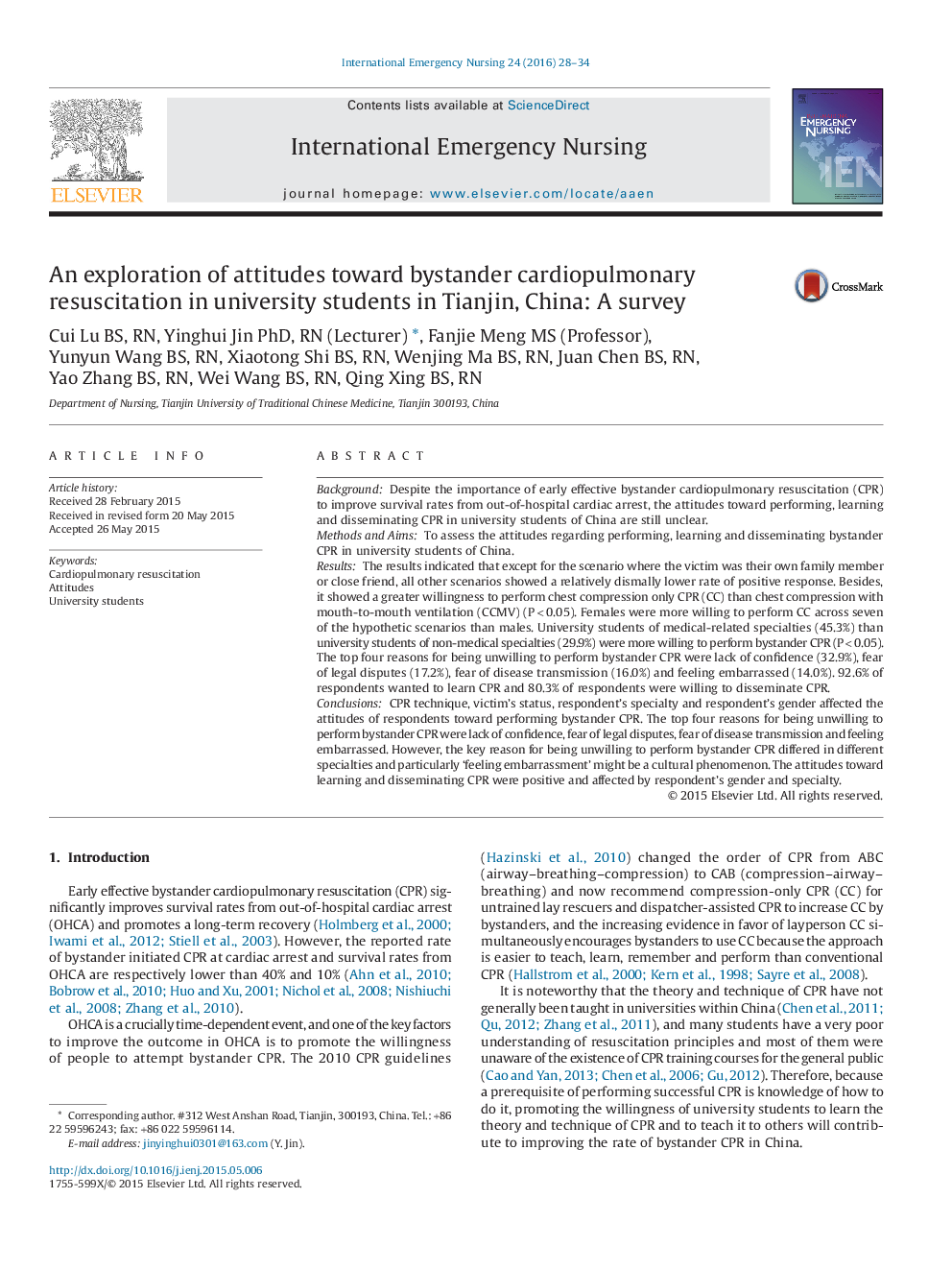| کد مقاله | کد نشریه | سال انتشار | مقاله انگلیسی | نسخه تمام متن |
|---|---|---|---|---|
| 2609428 | 1562841 | 2016 | 7 صفحه PDF | دانلود رایگان |
• CPR technique and victim's status affected respondents' attitudes toward performing CPR.
• Respondent's specialty and gender affected their attitudes toward performing CPR.
• The attitudes toward learning CPR were positive.
• The attitudes toward disseminating CPR were positive.
BackgroundDespite the importance of early effective bystander cardiopulmonary resuscitation (CPR) to improve survival rates from out-of-hospital cardiac arrest, the attitudes toward performing, learning and disseminating CPR in university students of China are still unclear.Methods and AimsTo assess the attitudes regarding performing, learning and disseminating bystander CPR in university students of China.ResultsThe results indicated that except for the scenario where the victim was their own family member or close friend, all other scenarios showed a relatively dismally lower rate of positive response. Besides, it showed a greater willingness to perform chest compression only CPR (CC) than chest compression with mouth-to-mouth ventilation (CCMV) (P < 0.05). Females were more willing to perform CC across seven of the hypothetic scenarios than males. University students of medical-related specialties (45.3%) than university students of non-medical specialties (29.9%) were more willing to perform bystander CPR (P < 0.05). The top four reasons for being unwilling to perform bystander CPR were lack of confidence (32.9%), fear of legal disputes (17.2%), fear of disease transmission (16.0%) and feeling embarrassed (14.0%). 92.6% of respondents wanted to learn CPR and 80.3% of respondents were willing to disseminate CPR.ConclusionsCPR technique, victim's status, respondent's specialty and respondent's gender affected the attitudes of respondents toward performing bystander CPR. The top four reasons for being unwilling to perform bystander CPR were lack of confidence, fear of legal disputes, fear of disease transmission and feeling embarrassed. However, the key reason for being unwilling to perform bystander CPR differed in different specialties and particularly ‘feeling embarrassment’ might be a cultural phenomenon. The attitudes toward learning and disseminating CPR were positive and affected by respondent's gender and specialty.
Journal: International Emergency Nursing - Volume 24, January 2016, Pages 28–34
